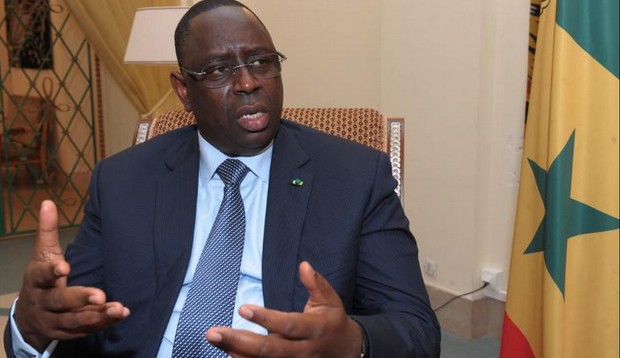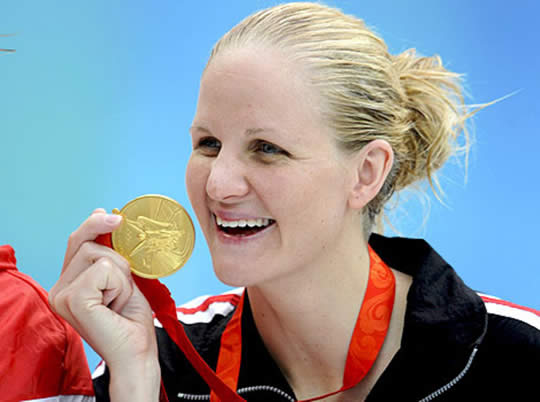Senegal: The danger of ‘yes sir’ politics

Boubacar Boris Diop Correspondent
ABDOULAYE Wade, the nonagenarian lawyer who ruled Senegal from 2002 to 2012, is remembered by many of his compatriots as loquacious, permanently agitated, and somewhat unpredictable. James Wolfensohn, a former World Bank boss who dubbed him “a very unusual president”, was perhaps not sure whether to be more bemused or amused by him. But when the current head of state, President Macky Sall’s secrets are eventually made public, by contrast they take everybody by surprise – as was the case on 3 April, when it was made public that two Libyan Guantánamo inmates, Salem Abdou Salam Chereby and Mohammed Abu Baker Mahjour Umar, had been transferred to Senegal.
Up to that point, nobody had been aware that the US had been putting pressure on Dakar for Senegal to become the second African nation after Ghana to agree to such a high-risk move. It is perfectly possible that the decision was preceded by tough discussions and that the Senegalese government hesitated till the very end.
The only thing we know for sure is that once it had been finalised, Dakar either forgot, or was too embarrassed, to announce it.
The Senegalese people first heard about it through an official statement issued by the US Pentagon. Then there was a declaration by John Kerry thanking Senegal for “this significant humanitarian gesture. . .consistent with Senegal’s leadership on the global stage”, followed by a letter from President Obama to his Senegalese counterpart two days later. In a country that prides itself on its free press, this came as a serious blow and understandably, public opinion was marked with anger. One of the deputies from the opposition drew a comparison between Barack Obama’s respect for the American legislators and Macky Sall’s contempt for the Senegalese National Assembly.
Mankeur Ndiaye, the Minister of Foreign Affairs, was bombarded with demands for an explanation. On at least one occasion this man, who usually keeps his calm, lost his temper during a news conference and came close to insulting the members of the press who were laying into him. He seemed to see no reason for the outpouring of righteous indignation. The story was simple: the two Guantánamo detainees had expressed the desire to be transferred to Senegal, and as their African Muslim brothers, they could not be refused. He also categorically denied any suggestions of financial compensation, something I am prepared to believe. Political deals of this kind do not normally boil down to a vulgar commercial transaction; they are far more sophisticated than that.
Oddly enough, the security issue, which remains a major concern for the Senegalese population, was passed over in silence by the minister. It must be pointed out that these are not the only foreign prisoners the country has agreed to host on its soil.
A number of Rwandan “génocidaires” convicted by the Arusha tribunal are expected to arrive here in the coming weeks to serve time in a special high-security prison near Dakar.
The main difference there is that the two Libyans, after being detained in Guantánamo for more than a decade, have never been tried in a Court of Law.
They have both been tortured, but only one of them has ever had a charge raised against him.
The Senegalese authorities are aware that in terms of international jurisdiction the status of these prisoners is illegal and the entire procedure is actually immoral.
That is why the minister thought it necessary to declare that Salem Abdou Salam Chereby and Mohammed Abu Baker Mahjour Umar arrived as free men in a country where they will live freely.
When the history of the Guantánamo prison is written, no one will be surprised to learn that many other countries politely but firmly declined requests from the White House for this kind of unilateral transaction. So why did the Senegalese president say “yes, Sir”? What does his outwardly calm demeanour disguise?
Chances are that Macky Sall feels unable to stand up to the most powerful leader on the planet, especially when it comes to the highly sensitive issue of terrorism. Obama has given three reasons for his decision to close Guantánamo prison. First, it is costly, second, it fuels anti-US sentiment, and thirdly, it runs counter to US values.
It is regrettable that President Sall did not remind Obama that Guantánamo is nothing if not contrary to human values; that the security of his compatriots matters so little to Sall is deplorable.
Sending these two detainees abroad brings Obama one step closer to being able to close Guantánamo and, ultimately, to spare American lives. By hosting them in his country, Sall is putting Senegalese lives at risk. This may sound simplistic to some, but it really is as simple as that.
The bitter truth is that the Senegalese government has not taken this decision in a political vacuum. West African countries like Nigeria and Mali have been dealing with terrorism for many years, while two others, Burkina Faso and Côte d’Ivoire, have recently suffered bloody attacks.
It is these two latest attacks on the African continent that have put Senegal on high alert. People are searched now, especially at the entrance of hotels, supermarkets, or beaches – everyone is treated as a potential suspect.
For the first time in my life, I was asked to show my identity card before being allowed to board the ferry to Gorée Island. In December, the traditional New Year’s Eve fireworks were cancelled by government decree, and in late April, the Saint-Louis jazz festival, a major cultural event, was cancelled as well, amid fears of suicide bombings, before being authorised again at the last minute.
At the end of 2015, arrests were made in Kaolack and Dakar in what the Ministry of the Interior described as a preventive move against a jihadist network linked to Boko Haram and ISIL.
At about the same time, Cheikh Ould Saleck, a jihadist on the run from death row in Mauritania, was in hiding in Saint Louis before being re-arrested in Guinea-Conakry. And most of us have not forgotten Cheikh Tidiane Gadio, Abdoulaye Wade’s former minister of foreign affairs, who in January 2014 declared in an interview to the Senegalese daily Le Quotidien that there is an Islamic State training camp in Libya, where almost all the young fighters speak Wolof, our main national language.
Such allegations may not be easy to prove, but they are nevertheless perfectly plausible – it’s enough to consider the new religious trends in Senegal. Unlike their elders, a growing number of young Senegalese Muslims are convinced that Negro-African cultural values are incompatible with the true essence of Islam. This marks a
huge change in a country where President Léopold Sédar Senghor’s Catholic Christian faith was tolerated by a 95 percent Muslim population for over 20 years, and where interfaith marriages, if not an everyday occurence, were at least widely accepted. The impact of social networks and media as tools for indoctrination and radicalisation of the youth is putting this model of tolerance in jeopardy. It is interesting to note that the US State Department informed the Senegalese authorities that one of the two Libyan detainees is a gifted preacher and potentially dangerous.
In a nutshell, Senegal has allowed itself to become embroiled in the Guantánamo mess although it is already at risk of being hit at any moment. All this raises the most basic of questions: why? As we are watching the world we all depend on being plunged into a never-ending nightmare, why should a small country be the grass that gets trampled underfoot when elephants are fighting?
The answer to this question – or one part of it, at least – has come sooner than anticipated. On Monday, 2 May, not even three weeks after the arrival of the two ex-Guantánamo inmates in Senegal, Dakar and Washington signed a defence accord, sanctioning the “permanent presence” of American soldiers in Senegal.
Its main goal, as the US ambassador James Zumwalt has clearly specified, is to assist with the fight against the terrorist threat in Senegal and West Africa. One must also remember that in 2010 Abdoulaye Wade had closed the three French military bases in Senegal because, he said, they gave “an impression of incomplete independence”.
But almost immediately after he took over, President Sall reinstated and even strengthened the French military presence in the country.
So, to our collective surprise, we see that far from being a fortuitous act, the direct involvement of Dakar in the Guantánamo dossier is a logical and significant stage in the new strategic choice to redeploy the Western umbrella above Senegal.
In fact, this is not the first time that Macky Sall has taken Senegal into a hazardous political and military situation. When Riyadh determined in December 2015 to put in place a coalition of 34 nations against the terrorism, Senegal was one of the first to join.
But the country’s most disconcerting diplomatic move was the government’s decision, exactly a year ago, to despatch 2 100 Jàmbaar to Yemen to fight their Houthi rebellion alongside Saudi Arabia and other Arab countries.
For the modest Senegalese army, this was a huge number and the public was so outraged with Sall that they never left their barracks in Dakar in the end. Besides that, it was reported that the Saudis were furious when they found out that Sall was planning to send them reservists instead of fully trained soldiers, ready to confront the rebels on the battleground. In other words, they wanted him to provide them with black mercenaries, something that must have made memories come flooding back to President Sall, of the famous “tirailleurs sénégalais” from colonial times. History was against this deal and therefore, it did not happen. But one still has to wonder what made the Saudi authorities think the Senegalese president would be their lackey, to put it bluntly. It is not a reassuring thought.
At the end of the day, both the Guantánamo case and the pledge to fight a far-away Houthi rebellion throw up the question of how much importance Macky Sall attaches to the hard-won sovereignty of his country. This question is legitimate, despite the fact that during the first two years of his presidency, he gave the impression he was ready to challenge the West’s stranglehold on our economy.
He made a promising start, ostensibly continuing where Wade had left off, when he boldly opened the Senegalese market to new partners like China, Turkey and Saudi Arabia. He even had the courage to criticise Europe, as he did openly during the EU/Africa summit in Malta on the issue of the migration crisis.
Macky Sall undoubtedly deserves a certain amount of praise for beginning to move beyond the age-old tête-à-tête between Senegal and France; and yet, French companies have a greater presence in our country than ever before, particularly in the banking sector, and major public infrastructure and telecommunications projects – an issue raised by a number of prominent Senegalese businessmen.
The truth of the matter is that Western countries actively endorsed Sall’s candidacy in 2012. Since he is fully aware of their position of power, he is loath to disappoint them, especially because doing so could cost him his re-election in 2019. For the same reason, he has suddenly, after four years of vacillation, turned into a vocal advocate of the EPA (Economic Partnership Agreement).
The agreement he is urging other prospective partners to sign intends to bind West African countries to the EU under conditions that Demba Moussa Dembélé, the respected director of the African Forum for Alternatives, has rightly described as the recipe for a huge economic disaster. – New African magazine









Comments